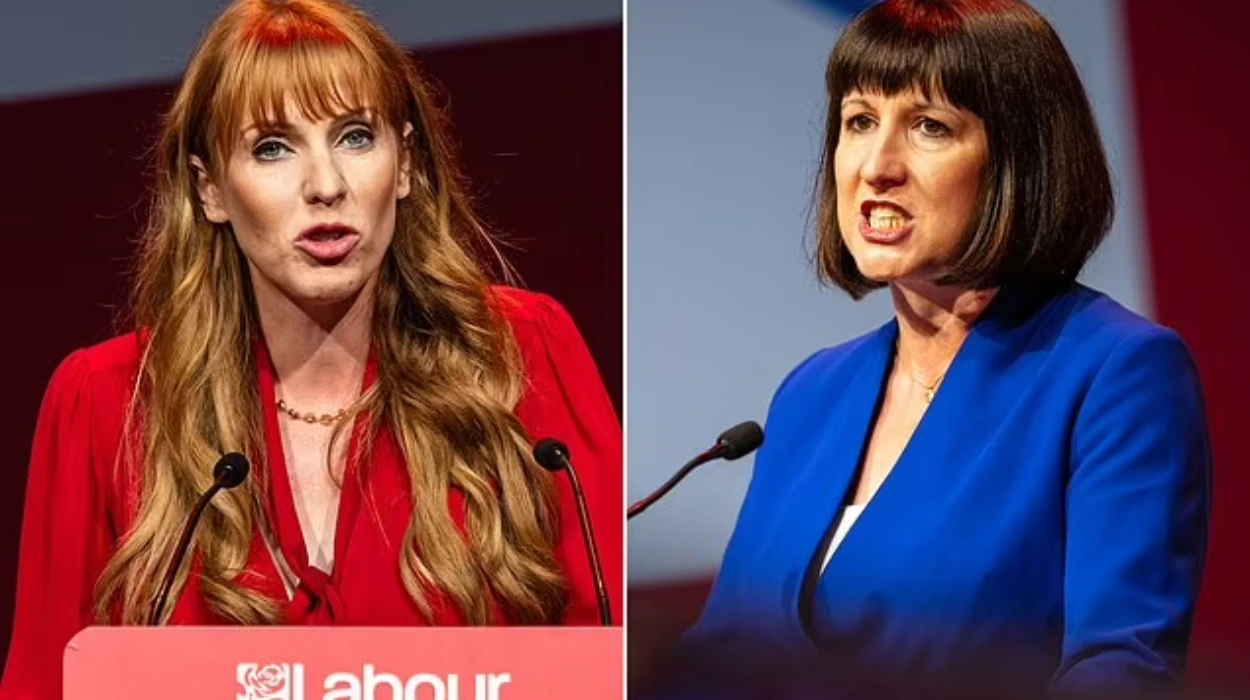UK (Parliament Politics Magazine) – Angela Rayner and Rachel Reeves clash over Labour’s spending review, exposing internal tension as several departments miss Treasury’s informal budget deadline.
As reported by The Independent, tensions have escalated after the deputy prime minister’s team missed a key deadline, intensifying her budget dispute with Rachel Reeves ahead of Labour’s crucial pre-election spending plans.
Departments said the Treasury had warned them to finalise budgets by this weekend ahead of the 11 June spending review.
What’s behind the growing rift between Rayner and Reeves?
Angela Rayner’s Ministry of Housing, Communities and Local Government is among seven departments still yet to finalise budget discussions with Rachel Reeves and deputy chancellor Darren Jones.
The Labour government faces conflict as ministers resist department cuts, revealing a deep political divide between its two female leaders. Ms Rayner advocates for progressive tax rises and limited cuts, while Ms Reeves faces criticism for promoting “austerity 2.0.”
Insiders reject reports that Ms Rayner slammed the door and left a meeting last weekend, describing them as “not true.” They say talks have been “cordial” but “not easy.”
Reports suggest her demands for proper local government funding in England and continued support for the affordable homes scheme after 2026 have led to a clash with the chancellor.
Which key departments are struggling to finalise spending deals?
The following departments are facing challenges in reaching a deal with Ms Reeves:
- Home Office (Yvette Cooper)
- Department for Environment, Food and Rural Affairs (Steve Reed)
- Department for Energy Security and Net Zero (Ed Miliband)
Only defence received a spending package equal to 2.5% of GDP, while health budgets remain protected. Meanwhile, other departments must identify savings to help Ms Reeves manage the budget.
How are trade unions influencing council settlements amid financial strain?
Council settlements are under close examination by trade unions, who see them as key to upcoming wage negotiations.
Birmingham and similar councils face the threat of bankruptcy as financial constraints and pay demands mount.
How did Rayner’s leaked wealth tax proposals spark controversy?
Just a week after a memo from Ms Rayner to Ms Reeves was leaked to the Daily Telegraph, the standoff has intensified, with the deputy prime minister’s supporters calling it “poisonous.”
She suggested introducing eight new wealth taxes to avoid cuts. The memo pushed for restricting migrant benefits and reviving a repayment plan for middle-class families on child benefits, a move initially made by former chancellor George Osborne and later dropped by Jeremy Hunt.
How is the Chancellor navigating investment pressures amid strict borrowing rules?
The chancellor faces pressure to boost investment in red wall seats where Labour risks losing ground to Reform. Reports suggest she plans to increase spending on projects in northern England and the Midlands by relaxing her strict borrowing limits.
Under tough borrowing limits she imposed on herself, Ms Reeves is under pressure to maintain economic trust while keeping her election pledge not to increase employee national insurance contributions, income tax, or VAT.
What did the Treasury source say about spending review progress?
A Treasury source said,
“More than half of departments have settled [funding agreements] three weeks out from the spending review, which is pretty unusual and the fact you’d always expect negotiations to go on.”
Purpose of the spending review
- Sets multi-year budgets for government departments (e.g., NHS, defence, education) and allocates funding for public services, infrastructure, and welfare.
- Prioritizes fiscal rules, balancing spending with tax policies and borrowing limits to ensure long-term financial stability
- Divides spending into categories: day-to-day costs (e.g., salaries) and long-term investments (e.g., roads, hospitals)

